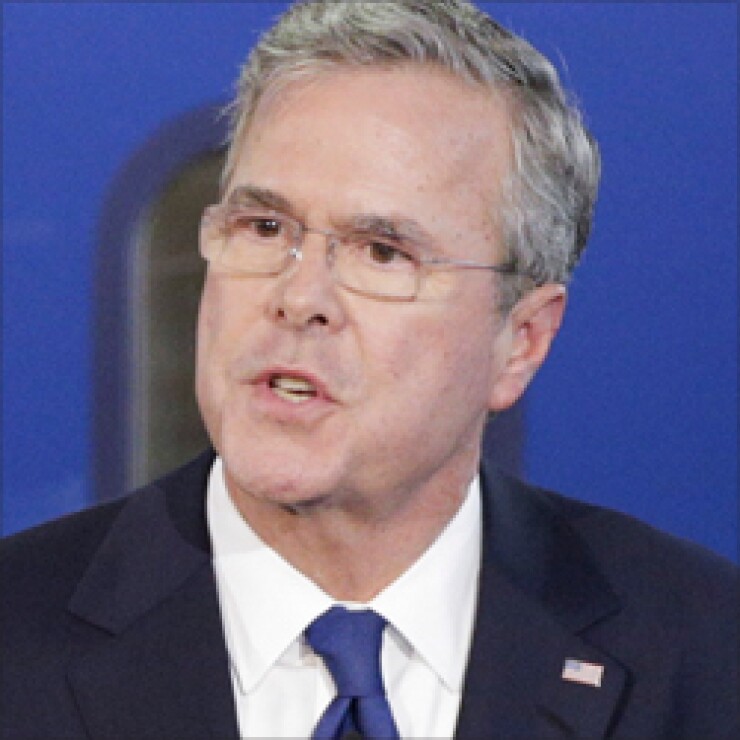
WASHINGTON — Former Florida Gov. Jeb Bush, a Republican candidate for president, has unveiled a broad plan to reform the regulatory process, including at independent agencies like the Consumer Financial Protection Bureau.
Bush outlined his agenda to cut government red tape and boost the economy in a
"If you're wondering why it's hard to get a mortgage, why no new banks are opening up, why your power bill will be going up, why your health insurance costs more, why we don't build new highways, why you can't get medicines that are available in Europe, Barack Obama's rules are a big part of the story," Bush wrote.
He said he would establish a new commission "charged with reviewing regulations from the perspective of the regulated and shifting more power from Congress back to states."
New rules by independent agencies would also come under stricter White House review. The Office of Information and Regulatory Affairs, which is housed in the Office of Management and Budget, oversees the release of proposed rules and final regulations by executive agencies, it does not have any authority over independent agencies, including the banking regulators.
"In my administration, every regulation, including those issued by so-called independent agencies such as the Consumer Finance Protection Bureau, will have to satisfy a rigorous White House review process, including a cost-benefit analysis," he said. "Regulations will be issued only if they address a major market or policy failure."
While the banking agencies and other financial regulators, such as the Securities and Exchange Commission and the Commodity Futures Trading Commission, do use cost-benefit analyses in the writing of rules, some observers — particularly conservatives — have pushed for more comprehensive requirements.
Bush added that he would "work with Congress to repeal significant portions" of the Dodd-Frank Act in addition to changing "the complex set of rules that perpetuate too-big-to-fail financial institutions."
The presidential hopeful also took to task the so-called revolving door between government and the private sector.
"Regulation feeds into Washington's revolving-door culture. Regulators spend years writing complex rules, then leave for the private sector to sell their inside knowledge to the highest bidder — usually a big, well-entrenched company," Bush wrote. "No wonder so many Americans are cynical about who Washington really works for."
Critics across the political aisle have warned that movement between federal agencies and banks has weakened oversight of the financial system. Hillary Clinton, the leading Democratic presidential contender, backed a bill last month by Sen. Tammy Baldwin, D-Wis., that would overhaul lobbying rules in an effort to slow the pace of those moving between the business and government.
Bush added that he would require agencies to "create one dollar of regulatory savings for each new dollar of regulatory cost they propose."
"We will eliminate and reform outdated and burdensome rules and, when necessary, work with Congress and the courts to overcome legal obstacles that stand in the way of sensible savings," he wrote.





